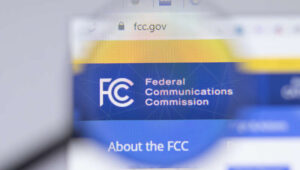A new survey finds that the majority of educators (78 percent) are optimistic about the impact artificial intelligence (AI) technology will have on their classrooms, but lack support on how to begin incorporating the tech into their learning environments.
The U.S. Department of Education has announced the winners of its Future Finder Challenge, a $1 million challenge to reimagine career navigation for adult learners.
The Biden-Harris Administration announced $277 million in grant funding to advance educational equity and innovation through the Education Innovation and Research (EIR) grant program.
New York Gov. Kathy Hochul has announced $100 million in Federal funding for high-speed broadband infrastructure that will focus on connecting affordable housing units across New York state.
Michigan Gov. Gretchen Whitmer signed a wide-ranging election bills package aimed at improving election efficiency, increasing voter registration opportunities, and protecting equal access to the ballot box.
In order to address the broadband workforce shortage, the Colorado Broadband Office (CBO) and the Colorado Department of Labor and Employment’s Office of Future Work (OFW) have released their plan to tackle a major obstacle hindering broadband deployment across the state.
The state of Kansas announced that applications are now open for the Advancing Digital Opportunities to Promote Technology (ADOPT) program. The ADOPT program will award $14.7 million in grant funding to organizations addressing the challenges of broadband accessibility, affordability, and device availability.
Santa Cruz County, Calif., has launched the new MySCCounty+ app, which provides residents a digital platform to purchase and store digital permits, as well as access other county services.
The Federal Communications Commission (FCC) announced a new initiative intended to strengthen and formalize the cooperation between the FCC and participating state attorneys general (AGs) on privacy, data protection, and cybersecurity enforcement matters.
The Cybersecurity and Infrastructure Security Agency (CISA) – along with the National Security Agency (NSA), Environmental Protection Agency (EPA), and the Israel National Cyber Directorate (INCD) – have released a new cybersecurity advisorywarning of continued Iranian-backed cybersecurity attacks aimed towards American and Israeli water and wastewater systems (WWS).













